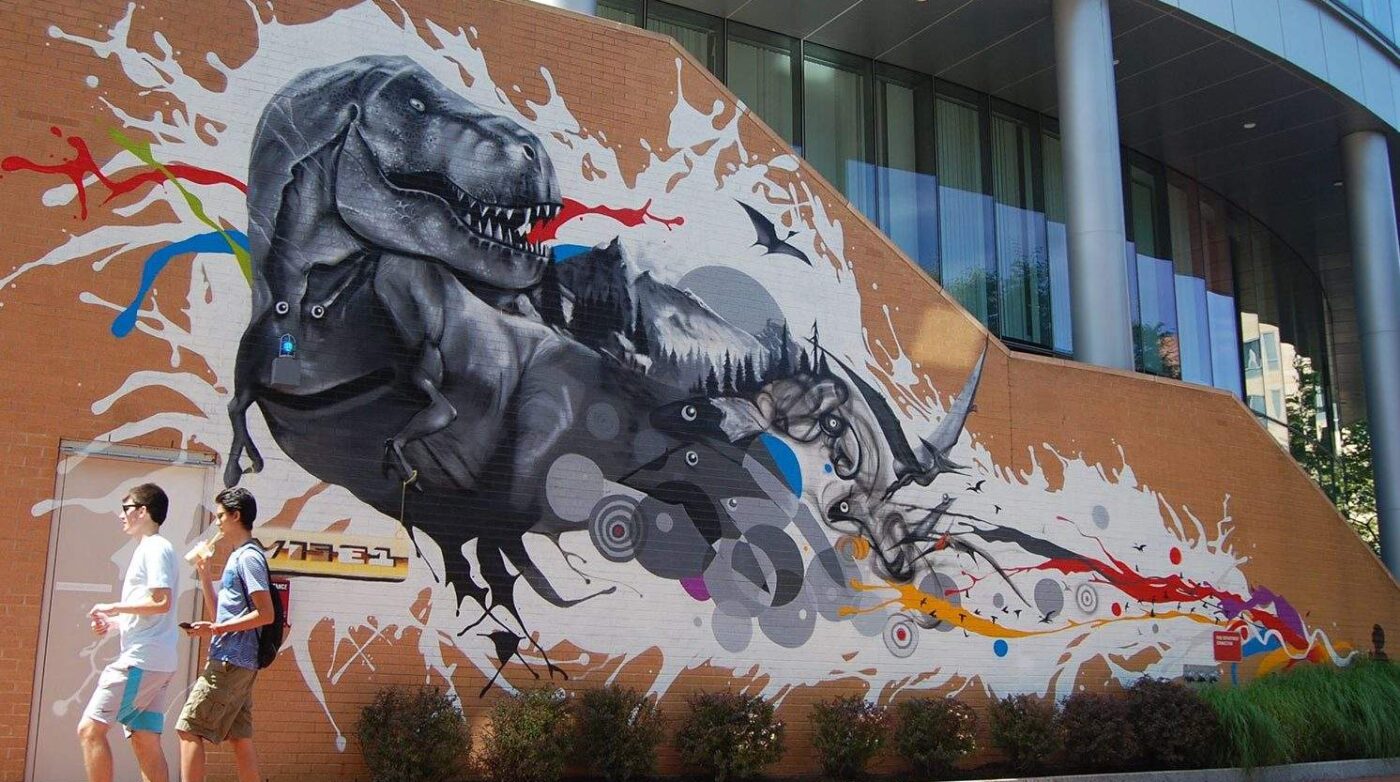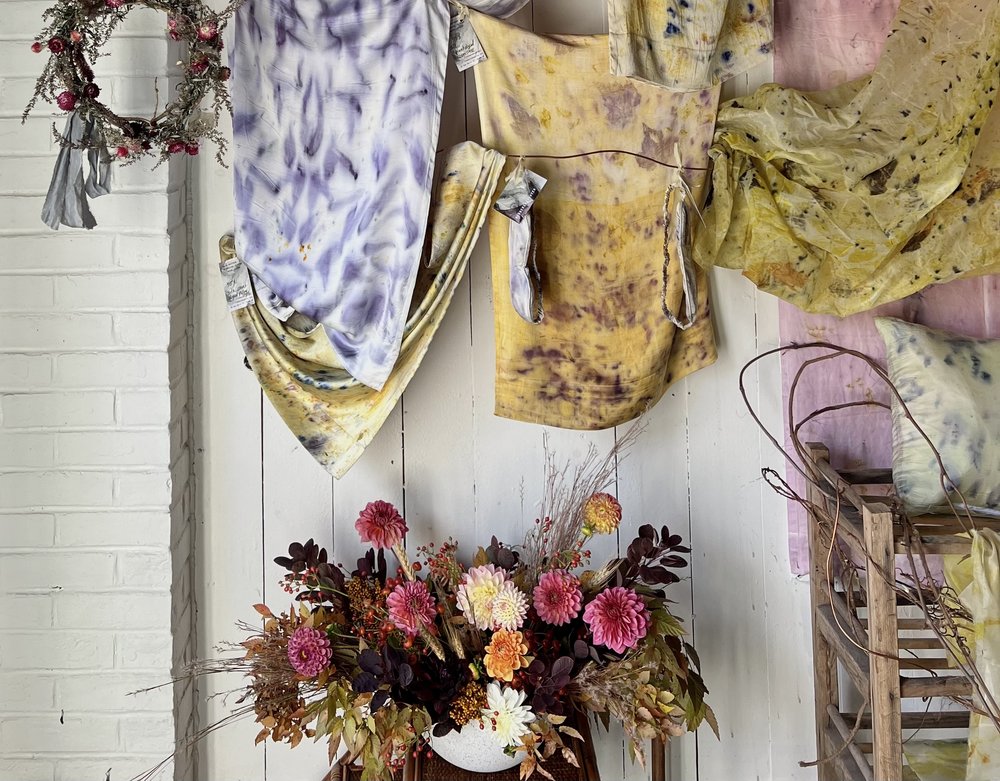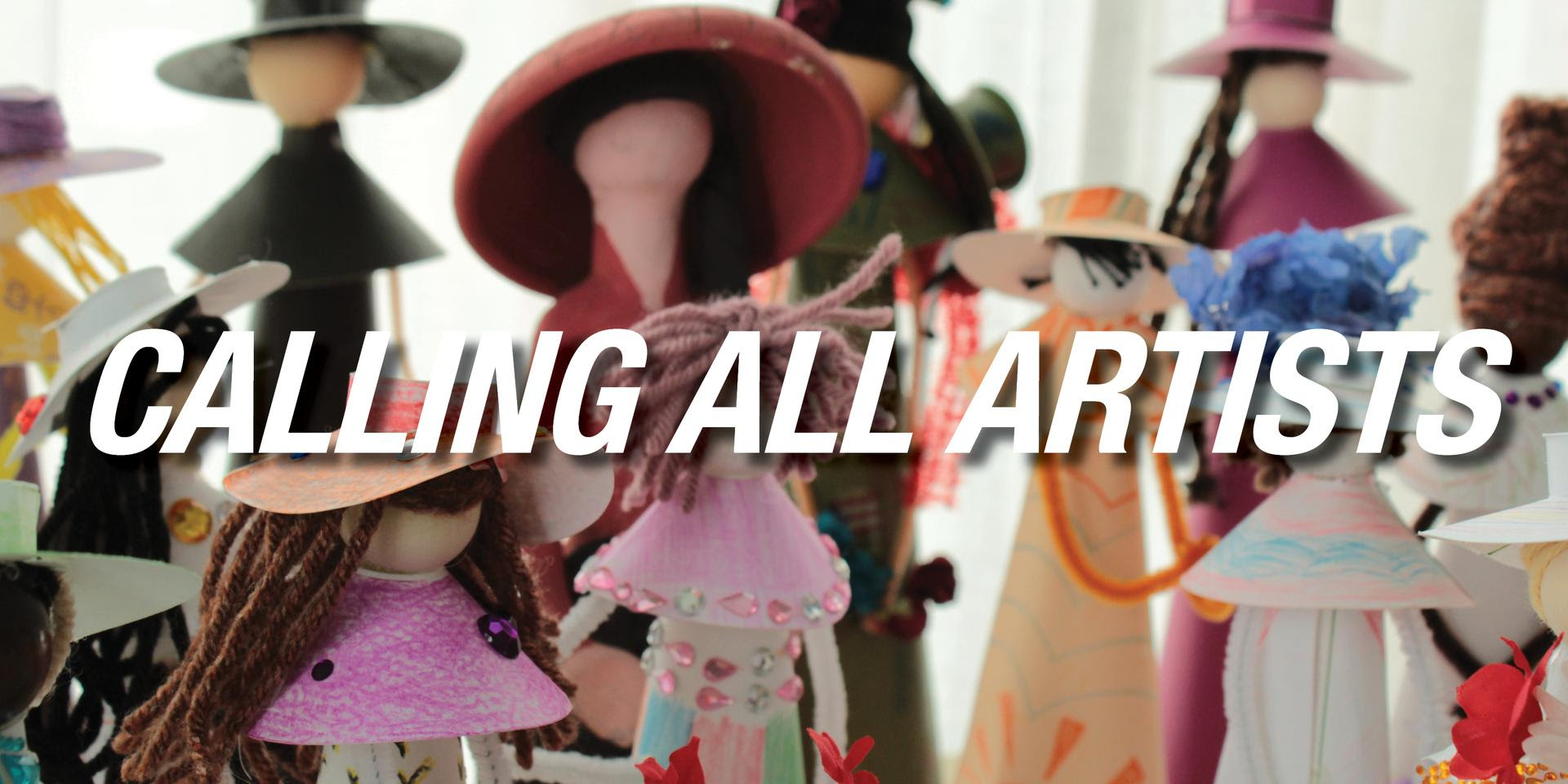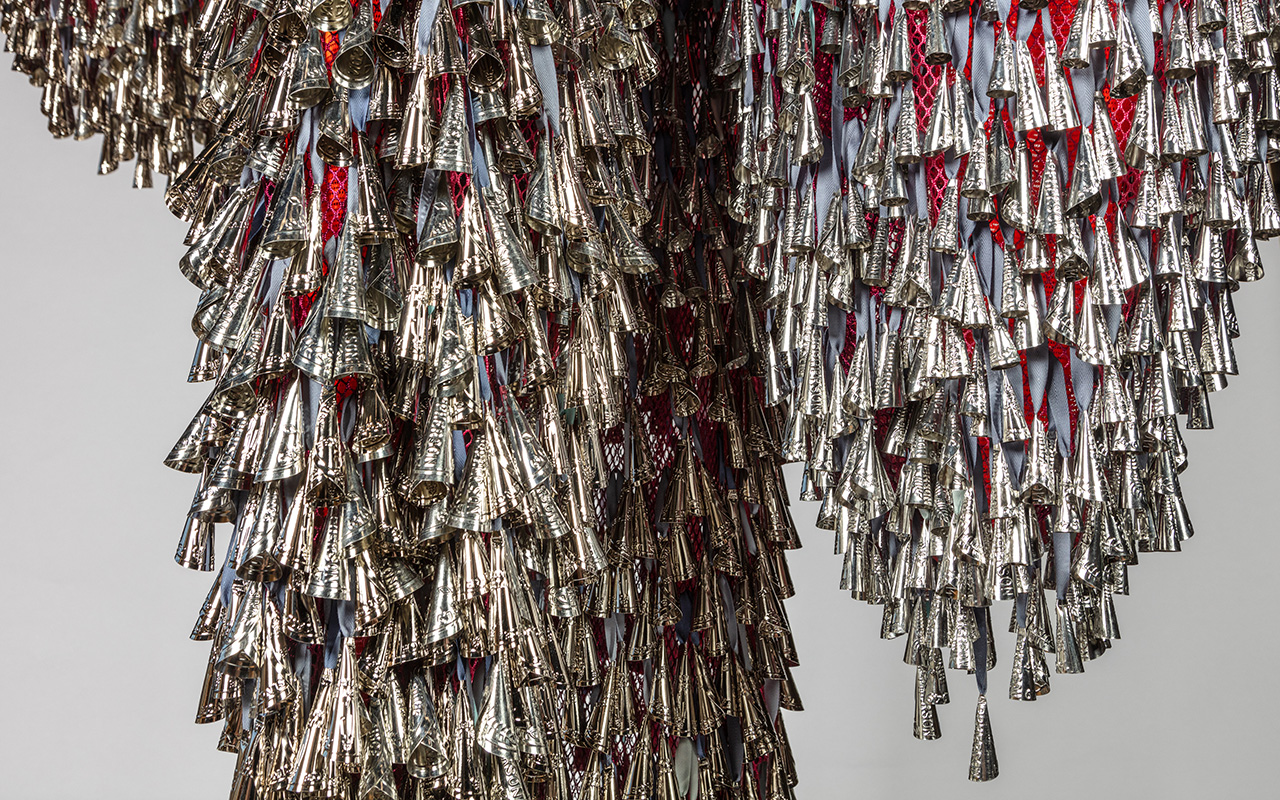by Alyse Diamantides
As a teenager, Cedric Douglas was arrested for painting the pavement of a run-down Quincy basketball court. To police, it was vandalism. But Douglas thought he was beautifying the cracked, abandoned space.
Fast forward more than two decades, and Douglas is now a prominent Boston street artist, muralist and social activist who uses art to strengthen communities and make people more aware of what’s going on around them. His colorful guerrilla-style street art and wall graffiti splashes across buildings in Boston, Lynn, Peabody, Vermont, Virginia, and Israel, among others.
In July, he was also a guest speaker at a long-table discussion in Ipswich. Seated at the head of a large dining room table, the artist spent the evening conversing with more than a dozen locals, including photographers and artists, as well as a graphic designer, dancer, writer, and stone carver. Contrasting a standard panel discussion, everyone who attended had the opportunity to take a seat at the table, speak their mind and write ideas down on the paper-covered tablecloth.
Cynthia August, a Boston portrait photographer, moderated the open-dialogue conversation at Ipswich’s Hall-Haskell House. But she was originally inspired to hold her own event after seeing Robert Shetterly’s portrait series, “Americans Who Tell the Truth,” displayed around town. Nearly 30 paintings, which Shetterly created in response to the government’s actions following the September 11 attacks, came to Ipswich.
For August’s long-table discussion, she wanted to dive into more controversial topics. “How do we, as creative people, tackle the hard stuff?” she asked the group. Especially, she added, when “what you want to say isn’t always easy.”
Nearly a year ago August became a member of Creative Collective, which is a network that provides support and resources to small businesses, entrepreneurs and nonprofits across the North Shore. After reading an article on Cedric Douglas featured on Creative North Shore, she invited the artist to be the lead speaker in the discussion.
“As artists, we want to connect with people,” Douglas spoke to the group, adding how he creates “provocative art that delivers a profound message.”
Calling himself a social interventionist, Douglas graduated from Massachusetts College of Art and Design in 2011 at the age of 33. Since then, he’s served as an artist-in-residence at Emerson College and Northeastern University and has participated in Lynn’s Beyond Walls Street Art Festival. In addition to his ongoing projects, he also serves as creative director of the Up Truck, a mobile art studio that brings art to the Uphams Corner neighborhood of Dorchester and engages everyday people in artmaking.
For the artist, many of what he calls his “best ideas” come about when he’s angry or upset about something. Holding up a roll of yellow caution tape, he spread it out for others to see. The tape read: “Don’t shoot.” He says he has plans to develop the project further and enable others to access the tape and place it wherever they want. Similarly, for another art project, Douglas approached strangers on the street and asked them: “When is it OK to shoot someone?” With their answers handwritten on large red shoe tags, he passed around the cardboard cutouts to the group.
“It makes me happy to see people doing it,” he said of people speaking up against injustice. “People care now.”
Painting in Israel
With interest from the group, Douglas discussed his recent trip to Israel, where he was invited by Artists 4 Israel to paint one of his large-scale murals. During those few days, he said he immersed himself into the country and wanted to share his art with the people who lived there.
While visiting a spot that overlooks Gaza, Douglas said he saw a number of bomb shelters, or places where residents have 15 seconds to get inside and hide.
“I want to paint here,” he recalled after seeing one bomb shelter. Using spray paint, he worked on a portrait of a young boy pointing up to the sky. He said he hoped his piece, with the boy’s innocent and pure expression, would transform the space and “bring just a little bit of hope.”
One day while painting in the hot sun, he said a young girl and her family came and admired his design but asked why there was not a girl in the painting too. He took a photo of the child and said he’d try to paint another mural before returning home.
But Douglas said he couldn’t stop thinking about that little girl. During his last day in Tel Aviv, he decided to purchase more supplies and paint the girl’s portrait near some other street artists on a building in the bustling city. Starting just after midnight, Douglas said he worked until 7 a.m. to finish the mural before boarding a 14-hour flight back to Boston.
“There was something pushing me to paint that piece,” he said. “I had to do it.”
As an artist, Douglas doesn’t underestimate the place where creativity collides with confidence and transforms into something special. “We’re creative as a species,” he says. “There’s something magical about connecting with that creativity. There’s value in that, to get to a place of the unknown.”








